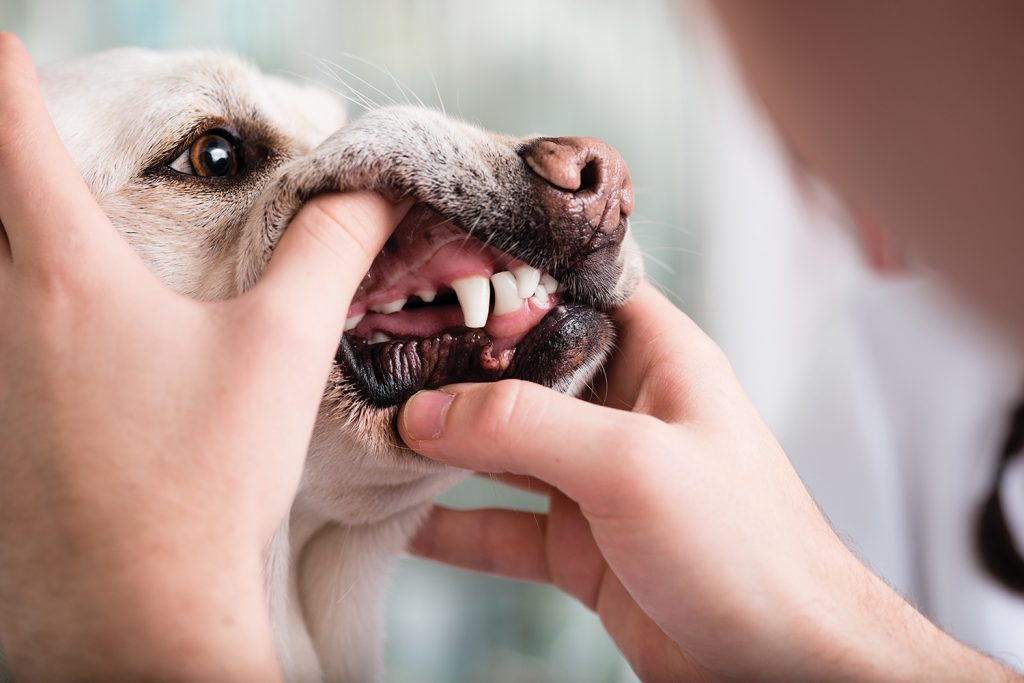
Taking care of your teeth may be part of YOUR daily routine, but do you also give your pet’s choppers that same kind of care?
You should.
Just as it is for humans, dental health is important to your pet’s overall health. Dental issues can lead to — or be a sign of — other health problems. These problems can potentially damage not only your pet’s teeth and gums but its internal organs as well.
Because your pet can’t communicate internal pains and problems, your pet’s teeth and gums should be examined at least once a year by its veterinarian. During the examination, X-rays may be needed to evaluate the health of the jaw and the tooth roots below the gumline. Thorough dental cleanings and evaluations are performed under general anesthesia. This lessens your pet’s stress and pain, and allows for a more successful cleaning and X-ray experience.
How to tell if your pet has dental issues
Has your pet become irritable? Is its behavior “off?” These may be signs of dental problems. Remember to be very careful when evaluating your pet’s mouth because even the gentlest critter may bite if it is in pain.
Although cavities are less common in pets than in people, pets can have many of the dental problems that we can develop:
- Broken teeth and roots
- Periodontal disease
- Abscesses or infected teeth
- Cysts or tumors in the mouth
- Malocclusion or misalignment of the teeth and bite
- Broken (fractured) jaw
Periodontal disease is common in cats and dogs
By the time your pet is 3 years old, it will likely have some early evidence of periodontal disease. Since it will worsen as your pet grows older if effective preventive measures aren’t taken, early detection and treatment are critical. Though periodontal disease may start in your pet’s mouth, it could lead to kidney, liver and heart changes.
Signs that there may be a health problem
Have your pet checked out by its veterinarian right away if you notice any of these symptoms. They could be signs of a serious health problem.
- Bad breath
- Broken or loose teeth
- Teeth that are discolored or covered in tartar
- Abnormal chewing, drooling or dropping food from the mouth
- Reduced appetite or refusal to eat
- Pain in or around the mouth
- Bleeding from the mouth
- Swelling in the areas surrounding the mouth
Why brushing is important
Regularly brushing your pet’s teeth is the most effective way to keep its teeth healthy between dental cleanings. By brushing its teeth at home, you may be able to reduce the frequency or even eliminate the need for periodic dental cleaning by your pet’s veterinarian. Daily brushing is best but since it’s not always possible, try to at least brush several times a week. Though most dogs are fine with “brushing time,” cats can be a bit more resistant. Patience and training are important.
Get veterinarian recommendations
There are many products that claim to improve pets’ dental health. Not all of them are effective. Talk with your pet’s veterinarian about any dental products, treats or dental-specific diets that you’re considering for your pet or ask for the veterinarian’s recommendation.
Source:American Veterinary Medical Association



